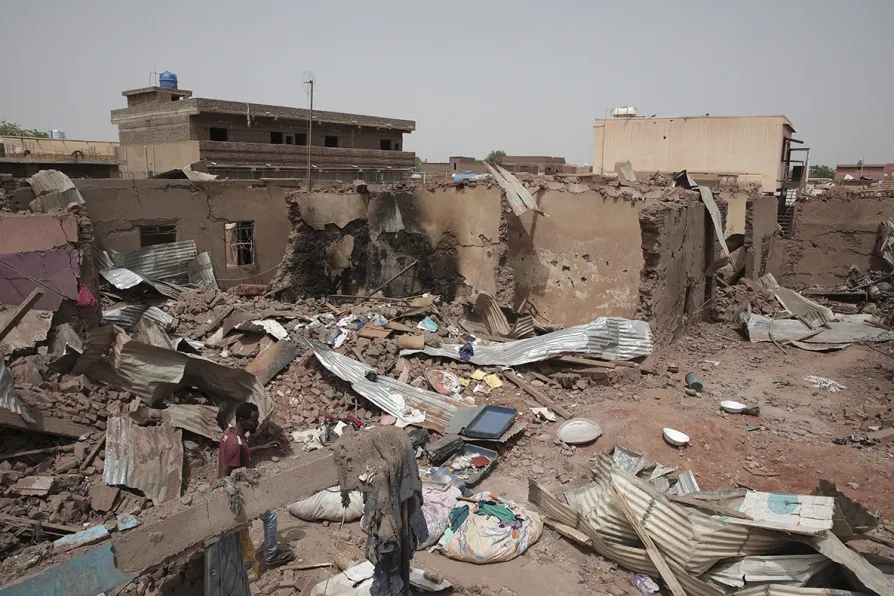Sudanese paramilitaries massacre more than 120 people in own town, says doctors' group

 A man walks by a house hit in recent fighting in Khartoum, Sudan, an area torn by fighting between the military and the notorious paramilitary Rapid Support Forces, April 25, 2023
A man walks by a house hit in recent fighting in Khartoum, Sudan, an area torn by fighting between the military and the notorious paramilitary Rapid Support Forces, April 25, 2023
FIGHTERS from the notorious paramilitary Rapid Support Forces massacred more than 120 people in one town in east-central Sudan.
It was the group's latest attack in the civil war against the Sudanese military which has raged for more than a year, killing at least 24,000 people, displacing millions and pushing the country to the brink of a full-blown famine.
The Sudanese Doctors’ Union said that at least 124 people were killed and 200 others were wounded in the town of Sariha, adding that the RSF rounded up at least 150 others.
Similar stories














